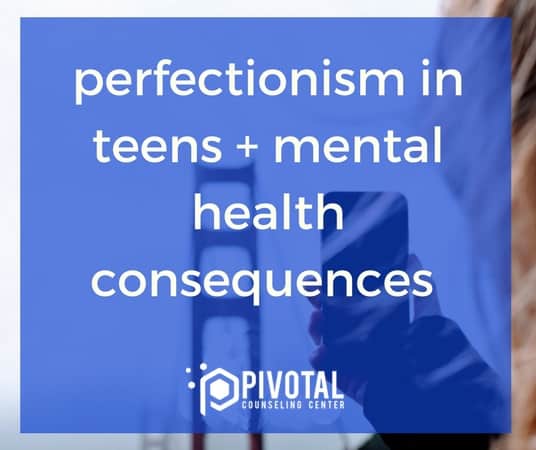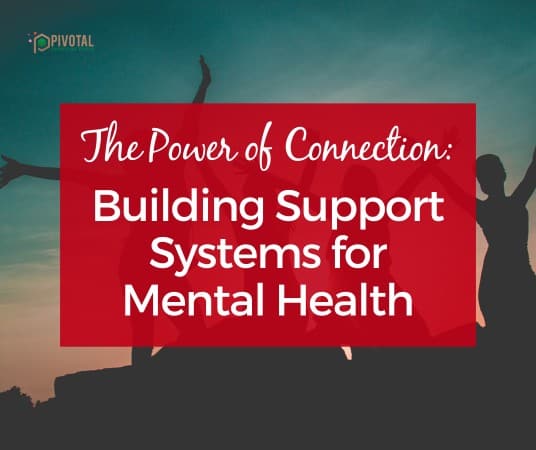
There is a lot of pressure on teens to be able to do everything perfectly all the time. With college applications and job experience requirements, even the most ambitious teen can get bogged down with the pressures going on around them, not to mention all of the regular social stresses that have to do with and staying in the right social cycles.
As you can imagine, there can be a lot of consequences for a perfectionistic teen, and it’s time to take a look at how it will affect them both short- and long-term. The mental health consequences linked with perfectionism are:Failure to thrive
Since there is so much pressure to do everything perfectly, it will feel as though nothing is ever good enough, and the teen will not want to try doing it in the first place. It is a self-fulfilling prophecy: nothing is ever good enough, so there’s no point in trying, which results in the expected failure.Depression
Due to the amount of pressure and emotional distress, depression is a common mental health consequence for teens. They’ll feel stuck and alone and the pressure of perfectionism is never going to lift. In serious cases, this can even lead to suicidal behaviors. They become desperate to get away from the perceived disapproval of their family, peers or role models.Anxiety
Pressure makes diamonds, but pressure for teens also makes long-lasting anxiety that creates a much harder future for them. They’ll be dealing with stress over social situations, academic situations, life goals, and much more. Teen anxiety often becomes life-long, which can impact their performance as an adult, the success of their relationships, and their ability to handle everyday stressors.Eating disorders
Since they can’t have control over how their life is going to play out in terms of doing everything perfectly, they turn to the idea that they can make themselves look “perfect,” and some teens start with problematic attempts at weight loss. They’re trying to match the commercial branding of beautiful, and take drastic measures in order to get there and achieve this sort of perfection. Restricting food, removing whole categories of food, barely eating, and believing they are never skinny enough are signs that your teen needs to be screened for an eating disorder. There is a strong link between perfectionistic teens and eating disorders.What to do about it
None of us want to see a teen buckling under the pressure of perfectionism, so it’s important to make sure that you deal with it by helping your teen to understand that perfectionism is a moving target based on their expectations alone. Your goal as the parent or supporter will be to guide them to the right behavior and mindset in terms of their goals. Here are some great ways to do that:Comment on their successes instead of critiquing on failure
We often think that scolding our child for a bad mark on a math test might be the best way to help them get a better mark next time, but it can just add more pressure to this already anxious teen. Congratulate them, instead, for doing well and try to work to build up their confidence to do even better next time. Focus on giving feedback that is encouraging, helpful, and productive.Encourage them to talk about why they feel pressure
Maybe they get stressed when taking tests, meaning they won’t do as well as they could. It’s important to understand where the pressure is, where it comes from, and how to make it easier. Encourage your teen to talk about what makes them feel like they’re failing.Always tell them to do the “best possible” for themselves
The end goal, in order to keep away from perfectionism, would be to do as good as possible and then be happy with the result. Essentially, “do the best you can” and that is going to be automatically understood as a perfect result by your own (and your teen’s) standards. If their “best possible” continues to be below average, then problem-solve some solutions to help your teen get the extra help they need to be successful (tutor, coaching, extra studying time, etc.). Sometimes “trying your best” means acknowledging our limitations and deciding to get extra help in that area.Remind them that perfectionism isn’t the best result
Perfectionism isn’t healthy, and getting straight A’s across the board is not essential for survival in life. Help your teen understand that and make sure they are getting support to enjoy life and what it can bring instead of feeling guilty for getting a 90% instead of 100%. It’s not worth it, in the end, and it will hurt your teen in the long run. Perfectionism in teens is a serious issue that can be identified and treated if you’re looking to get professional help. Counseling for the teen and their family can be a great way to work on perfectionism and help the teen lead a happier and more successful life.Pivotal Counseling Center has therapists who work with teens and specialize in depression, anxiety, and how to manage issues at home and school. We have locations in Woodstock, Illinois, and Lake in the Hills, Illinois. If you are in need of someone to help, please consider giving us a call at (815) 345-3400.









